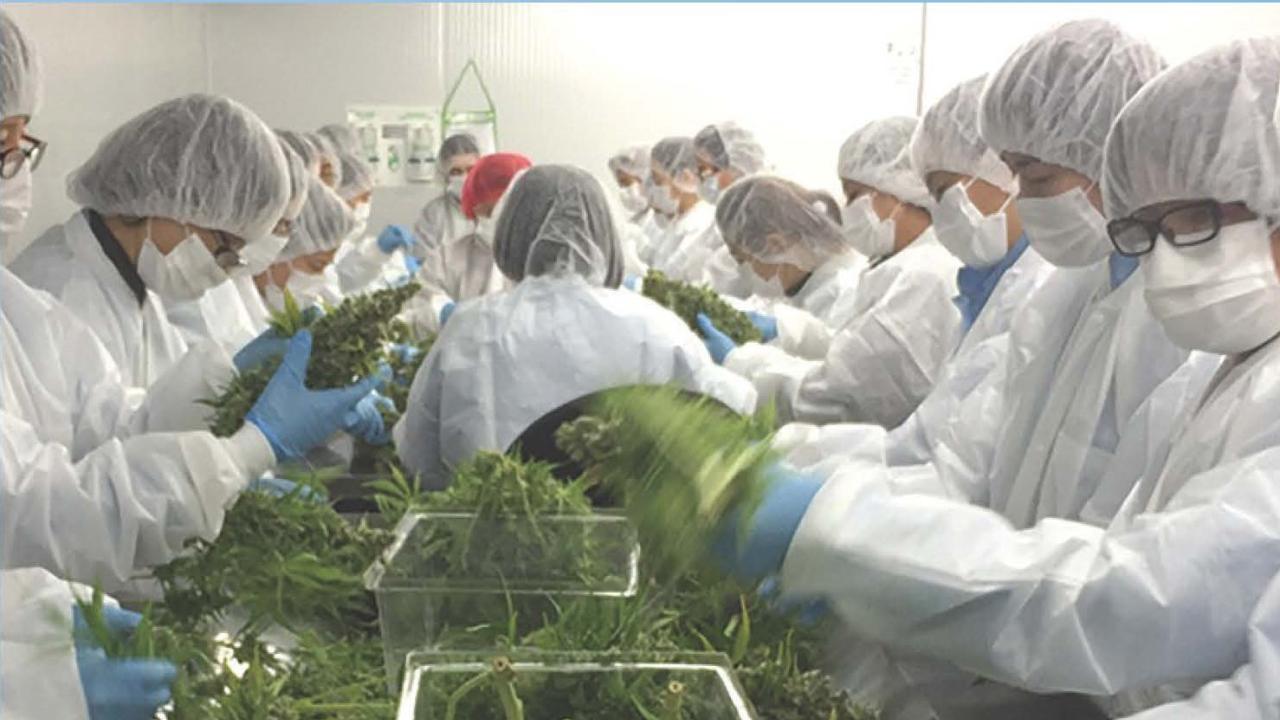
WCAHS Funds Innovative Small Grants Ranging from Cannabis Production Hazards to Community Water Quality
New research is taking place at WCAHS, thanks to its Small Grant Program, which provides funds to graduate students and faculty members from around the region to carry out projects related to agricultural health and safety. An annual call for proposals is released each year. The 2017-2018 cycle closed in July with a total of 13 submissions, resulting in six proposals that were funded after a thorough external review process.
The goals of the program are to facilitate innovative research, engage graduate students and investigators across wide-ranging disciplines, and attract new researchers to the field of agricultural health and safety.
Funding innovative research in agricultural health and safety
Several of the projects funded though the 2017-2018 cycle relate to topics that are either understudied or represent new and upcoming agricultural safety and health issues. For example, Monica Cooper, a Farm Advisor with the Napa County Office of University of California Cooperative Extension, is studying the impact of sexual harassment of female farmworkers at vineyards, in terms of health and safety risks, team functioning and organizational structure. The project aims to develop predictive models to identify when workers are at greatest risk of sexual harassment. It is hoped that it will help companies be proactive in structuring their organization to foster safe work environments to reduce the probability of sexual harassment. This project is highly complementary to the first WCAHS emerging issue project on sexual harassment.
Farzaneh Khorsandi, of the Biological and Agricultural Engineering Department at UC Davis, is studying California’s growing cannabis industry, which is estimated to create a large number of jobs in the upcoming years. While California and a few other states have legalized cannabis production, primarily for medical use, the safety and health hazards related to the industry are not well known.
“Very few studies address the health and safety issues of farmworkers in this industry, and there is no safety training program for these workers in California” said Dr. Khorsandi. “I hope that developing a program to educate workers and supervisors about the potential hazards and accidents related to this work will help them use appropriate prevention methods.”
Focusing on farmworkers and their communities
Other funded projects focus specifically on community health and implementation. Marc Verhougstraete, an Assistant Professor in the Community, Environment and Policy Department at the University of Arizona has been funded to train a group of community health workers to improve water quality in the Arizona agricultural community of Winchester Heights. The project will help residents of the community learn to collect, analyze and interpret bacteria and metals from contaminated water and present the results to community members, most of whom are farmworkers.
Katie Edwards, a graduate student in Forensic Science at UC Davis will look at whether metals present in dust inhaled by farmworkers contributes to lung damage. The project will test lung tissue from forty cases of lung damage from the Fresno County Coroner’s office to determine the extent of the damage, the quantity and identity of the metals present in the tissues, and whether specific metals are associated with sites of lung tissue remodeling and fibrosis.
A new project to be carried out among farmworkers is by Alvaro Medel-Herrero, a WCAHS researcher who will study leptospirosis, a bacterial infection that is primarily an occupational disease and may disproportionately affect farmworkers. Leptospirosis can cause a range of symptoms and can lead to kidney damage and liver failure. It can be lethal if left untreated. The project aims to estimate the prevalence of leptospirosis among agricultural workers in the California Central Valley. “We hope that our findings will help raise awareness about this silent epidemic,” Dr. Medel-Herrero said. “This research is needed to help inform the debate about the need for leptospirosis vaccination in human and animal populations.”
Putting research results into practice through training and education
Another of this year’s funded projects aims specifically to raise awareness and inform training, education and policy initiatives. Nathan Harkleroad, of Agriculture and Land-Based Training Association, will use their farm incubator program to train immigrant farmworkers in agricultural safety education. The project aims to develop training tools and materials for socially disadvantaged farmers and a broader network. The project will develop ten worker safety workshops to train farmers in worker agricultural safety and health practices and develop a bilingual worker safety resource on the organization’s website.
All of the funded small grants support the interest of the National Institute for Occupational Safety and Health in exploring new research areas and identifying new issues of relevance to agricultural health and safety.
